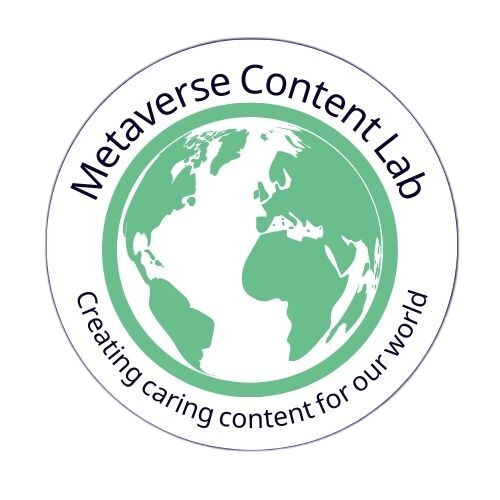Portfolio
The nature of our client work is often confidential, meaning that most of our content writing and copywriting projects can't be shared publicly.
Here you'll find a small taste of some of the work we have produced. If you'd like to learn more about the content niches we cover and what we can do for you, get in touch.

Deconstructing The Stigma Around IVF
Deconstructing The Stigma Around IVF

Lifestyle Collective, March 6 2023
By Karen Espig
I will start by proudly announcing I am the mom of a marvellous IVF human. I will always feel so fortunate it worked for me. I am also proud that my partner and I embarked on this journey. That being said, making the choice to do IVF is a big deal: physically and psychologically. And unfortunately, there are still some social stigmas that add additional weight to an already difficult path.
What Is IVF?
IVF, or In-Vitro Fertilisation, is one of several available assisted reproductive technologies. In a nutshell, egg and sperm meet in a laboratory dish; hopefully, they get along well enough to make an embryo, which is then implanted into a uterus.
This simplified explanation in no way describes the very real physical strains on the bodies of the women who provide the eggs and the wombs. In the weeks leading up to this embryo transfer, there will be a series of injections, ultrasounds, and blood tests.
The injected drugs naturally have some unpleasant side effects. But aside from that, imagine the strength of will it takes to stick a needle into your belly and inject liquid fire into it….because that is how it feels.
Seriously.
And you need to do it several times throughout the treatment. This is in addition to the more benign injections into your thigh or buttocks. It’s not like in the movies, folks.
Facts About Infertility
According to findings, in 2010, 48.5 million couples worldwide were experiencing infertility issues. It is estimated that infertility affects 10-15% of couples of childbearing age.
You might suppose that as it is such a prevalent issue, it would be no big deal in the public forum, but social norms take a long time to catch up with social realities.
There tends to be a perception that infertility is a women’s issue, when in fact, one-third of the cases are attributable to the male partner. The other third are either unexplained or a combination of both partners.
What Is Stigma?
Merriam-Webster defines the modern use of stigma as: “a negative and often unfair belief that people have about something.”
According to research, the stigma associated with IVF may cause women to feel isolated, anxious, or depressed. It may also cause feelings of exclusion and shame.
Not all stigma is created equal, and three main types are associated with infertility:
Social: how society views infertility
Individual: how the infertile feel, and
Enacted: actual examples of prejudice against them
Social Stigma: Childless-ness
Society generally encourages and expects women of childbearing age to have children, especially if they are in a committed relationship.
Unfortunately, baby shaming is a reality faced by couples who do not have children. It is not dissimilar to single-shaming. Women experiencing infertility are choosing to have a child. Still, according to outsiders (and themselves), they are failing at it.
Couples who bravely share their struggle with others are often bombarded with unhelpful advice (including gaslighting) instead of meaningful support.
In societies where the Christian Church plays a significant role, not having children may be viewed as “against God’s plan”. Couples can face exclusion from their spiritual friends and support systems.
Individual Stigma: Failure, Shame, And Secrecy
Nobody wants to feel like a failure, which is what it can be like for a couple trying to conceive. In the months or years leading up to the IVF cycle, there may have been miscarriages and dashed hopes.
Speaking about miscarriage and infertility is uncomfortable and still taboo. Often the friends of child-seeking couples already have children, are pregnant or planning them. It is difficult to share the pain and loss of a miscarriage or unsuccessful IVF treatment with your BFF who has kids already or is 6 months into her pregnancy. The tendency is to suffer in silence and in secret.
In a recent Allure interview, Jennifer Aniston made public (for the first time) that she went through the IVF process. For decades the media headlines speculated about pregnancies, shamed her for not having children, and erroneously blamed her marriage failures on this fact. She said nothing to refute it. Why?
Enacted Stigma
How the stigma of infertility manifests can be subtle. It can be hushed voices when speaking about a pregnancy or excluding someone from events because you do not want others to be uncomfortable. It can be asking, over and over, about people’s plans for children.
There is no shame in experiencing infertility and none in seeking medical intervention. I encourage all women to share their stories about miscarriage and infertility within their social circles. You may have more in common with your friends than you think.
A baby is a beautiful thing and should be celebrated. However, attention and respect should be extended to those who keep walking the hopeful path, month after month, or loss after loss.

Talk to us
Drop us a line if you have any questions or want to enquire about our content marketing & SEO content writing services! We'll be happy to chat and explore ways to help elevate your brand.
© Copyright 2023 Metaverse Content Lab

